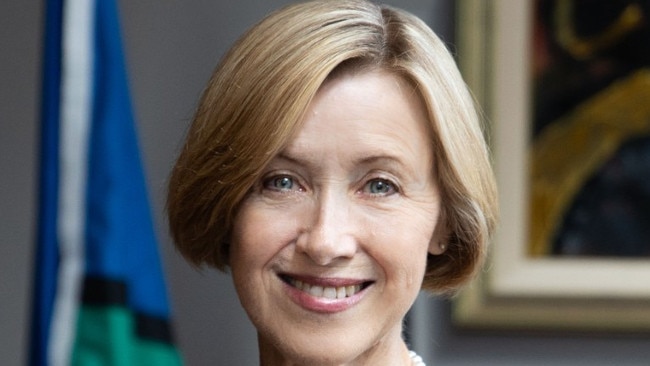Student visa slowdown will cost universities $310m, say vice-chancellors
Universities have warned the federal government that the sharp slowdown in student visa processing will hurt them as badly as Covid.

Sixteen universities have warned the federal government that the sharp slowdown in student visa processing to reduce the number of temporary migrants in the country is causing revenue losses that are as bad as during the Covid pandemic.
The vice-chancellors of the 16 universities last week sent a letter to Home Affairs Minister Clare O’Neil, saying they collectively stand to lose $310m in fees this year if international students accepted for study are unable to enter Australia because their visa is delayed or refused.
One of the signatories, Renee Leon of Charles Sturt University, told The Australian the government needed to address the situation within days.
“We are about to close the books for semester one,” Professor Leon said.
“They have to urgently clear the visa backlog for public universities.”
Charles Sturt says it is still waiting on visa outcomes for about 60 per cent of its international students who are due to commence courses this year, and losing these students would cost the university $20m.
The Department of Home Affairs assigns student visa risk ratings to universities and the 16 universities which signed the letter are mainly on levels 2 and 3 – with a higher risk rating than the lowest level of 1 – and had their visa processing “deprioritised” as part of an effort to reduce the number of people using student visas to come to Australia when their real intention was to live and work here.
In their letter, the 16 vice-chancellors asked Ms O’Neil to ensure that all universities were “serviced promptly and fairly” in student visa processing.
“We support the objective of the (government’s) Migration Strategy to reduce the number of non-genuine students entering Australia through high-risk provider institutions,” the letter reads. “However, the way in which the strategy is being implemented through the de-prioritisation of visa processing means that multiple universities are facing significant financial repercussions.”
Another vice-chancellor who signed the letter, Murdoch University’s Andrew Deeks, said his university had “ seen a disturbing increase in the number of visa rejections since October 2023, coupled with significant processing delays”.
“Based on our evaluation of the applications, the merit of the students applying is as good, if not better, than last year. However, in December 2022 the overall approval rate was 98 per cent, whereas this year it is 80 per cent,” Professor Deeks said.
“While we support the government’s clampdown on the issuing of visas to non-genuine students, many legitimate students are now losing the chance to study in Australia, with a corresponding impact on the Australian universities at which they would have studied.”
International Education Association of Australia chief executive Phil Honeywood said the focus of the new policy on low-risk-level universities appear to have skewed rates of refusal against level 2 and level 3 education providers. “Discussions are occurring with the minister and the department about how to restore equilibrium to education providers so they are dealt with more fairly,” he said.
In response to the vice-chancellors’ letter, Ms O’Neil said in a statement: “Change is hard, and we’ll work with providers to help them navigate the new system.
“Migration is too high. Our goal is very clear. We are returning migration to pre-Covid levels, and applying proper integrity to student visa applications is critical to doing that.”
Students from India and other countries in the subcontinent are the groups mainly affected by the visa slowdown.
But Professor Leon said that students from many countries coming to her university were being held up. “Even students from Canada doing dentistry can’t get their visas,” she said.
She added that, to her university, it appeared visa rejections were being given inconsistently depending on where the prospective student applied.
Professor Leon said that regional universities such as hers – which has campuses across regional NSW – needed international student revenue to help them invest in the government’s priority of educating regional students and students from low socio-economic backgrounds.
She said she thought the impact on universities was an unintended consequence of the government’s migration strategy.




To join the conversation, please log in. Don't have an account? Register
Join the conversation, you are commenting as Logout